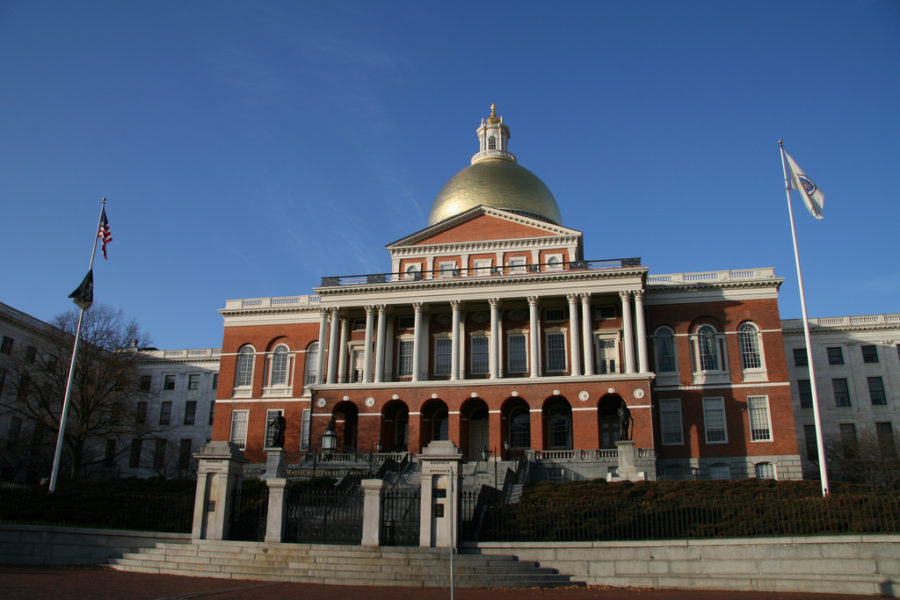New bill makes it clear that state leaders are not in touch
Massachusetts House Bill 1169 is labeled as “an act protecting sunlight in certain public parks,” but it is clearly evident that this bill does much more than that. The idea of banning new shadows on some of Boston’s most prominent public spaces is, of course, a noble idea, but when one looks into the implications of such restrictions it becomes apparent that this bill is detrimental to the growth and sustainability of Boston. Those who have proposed the bill to the state legislature – representatives Marty Walz (D, Boston) and Byron Rushing (D, Boston) – have also come out swinging against beneficial developments in the past, leading me to believe they do not have any city planning or economics backgrounds. If Boston is to succeed and prosper as a city, then we should leave the city planning up to the actual city planners, and not those on Beacon Hill who are so easily influenced by deep pockets and personal aesthetics.
In reality, this anti-shadow bill comes down to being little more than an anti-green, anti-sustainability, anti-business, anti-jobs, and anti-Boston bill. The regulations outlined would directly impact development for the entire Back Bay highspine, an area of the city specifically outlined for lofty developments in order to facilitate both the preservation of the historic Back Bay and South End residential neighborhoods and provide sustainable growth for the city. The highspine is a corridor flanked by the Green and Orange lines, served by multiple commuter rail lines, and served by Amtrak’s Northeast Corridor services. These efficient mass transit options make the highspine the best candidate in all of New England for tall, dense developments. By impeding growth here, we further disperse development, which is costly both in terms of the environment and in government budgets. If we are to reign in burdensome sprawl and remain a major city, we need to keep urban development viable, and not simply pass problems on to future generations.
Although an environmental travesty, this bill is not without its detrimental economic impacts. The reduced project heights that will be imposed by this anti-shadow bill will make many projects less feasible. The projects which do make it through the development process may not have as much square footage or as many units as the market would otherwise dictate, causing a rise in rents across the city for both residential and commercial properties. There will also be a scaling back of construction-related jobs and a weakened economy in the region. With fewer and smaller projects, construction jobs will be lessened and last for shorter durations. These negative economic effects will also put a greater strain on local and state taxes, which are reliant on strong growth to allow for a flow of local property taxes, state income taxes, and the state sales tax.
Rep. Walz and Rep. Rushing have also failed to explain what is wrong with shadows on parks, completely ignoring the fact that most parks are desolate in the short, frigid days of the winter months and many people already seek the relief of shady trees in the summer. Most of the city’s trees and greenery also seem to thrive with the partial shade offered by buildings as the sun moves across the sky. Post Office Square is one of the most successful and beautiful parks in the city and is surrounded by some of the tallest buildings in Boston. Walz and Rushing might make for fine representatives in Wellesley or Weston, but please keep out of Boston’s city planning – that is the Boston Redevelopment Authority’s job. With all this talk, one would hope the mayor would stand up to Beacon Hill, but we’ve barely heard a peep. It is time to wake up. The city needs to tell the state that we can take care of ourselves. If you can’t stand the shadows, get out of the city.









Kent Xie • Nov 10, 2011 at 8:46 am
To A.P. Blake,
Regarding the op-ed MASS Legislatures: Come Out of the Shadows and Get a Clue, written by A.P. Blake, I want to state that I wholeheartedly agree with the article. Having studied the subject of urban economics I’ve learned why dense cities exist and why it is preferable over sparsely populated, sprawled out cities. I want to provide further support for his reasoning.
As Blake mentioned, the anti-shadow bill, H.1169 would bar any new development that casts any new shadows on certain parks outside the hour after sunrise or before sunset. What makes this hostile to economic growth is the location of the parks, which are located within the heart of the city.
Proponents support this bill because they believe shadows would ruin parks. However, this fear is unfounded. One of the best public parks in Boston is Post Office Square which is surrounded by high-rises and is shrouded in shadow for much of the day.
The bill essentially pushes new developments away from all the benefits that businesses can take advantage of, such as public mass transit or other services such as hotels, conventions, restaurants, and the likes, and into areas where they shouldn’t be, creating more adverse effects than the shadow problem itself.
In addition, new developments will be moving into residential neighborhoods, sprawling out, because there is nowhere else to expand in the city. This creates traffic congestion, and thus pollution, as workers and customers will rely more heavily on cars to get to where they need to go. The cost to conduct business between firms increases due to longer travel time, restricting growth and business interaction.
In summation, the bill reflects the lack of economic planning by Marty Walz and Byron Rushing. There are many reasons why dense cities exist: to minimize cost and maximize growth while taking advantage of the localized economy. In simple terms, keep development where they make sense, in the city center.